67 Children Have Been Killed in Gaza Since 'Ceasefire' Began, as Israel Committed Hundreds of Violations
“This is during an agreed ceasefire," a UNICEF spokesperson said. "The pattern is staggering."
Eight children have been killed by Israeli attacks in Gaza over the past two days. They are among 67 children who have been killed since last month's agreement for a "ceasefire" in Gaza was signed, according to a new report from the United Nations Children's Fund.
“Yesterday morning, a baby girl was reportedly killed in Khan Younis by an airstrike, while the day before, seven children were killed in Gaza City and the south,” said UNICEF spokesperson Ricardo Pires on Friday.
The seven children were among dozens of Palestinians who were killed or injured by an Israeli quadcopter attack in Gaza City on Wednesday, according to Doctors Without Borders, also known as Médecins Sans Frontières (MSF).
“At around 11:00 am, we heard gunfire from quadcopters,” said Zaher, an MSF nurse working at a mobile clinic in Gaza City. “Shortly after, we received two casualties. The first was a woman with a leg injury. A little later, a 9-year-old girl arrived with an injury on her face caused by gunfire from the quadcopters.”
Last month, Israel signed an agreement with Hamas that required both parties to cease hostilities with one another. But since the deal went into effect on October 11, Israel has carried out attacks in Gaza on 35 of the last 42 days.
The Gaza Media Office alleges that Israel has committed nearly 400 ceasefire violations in just over a month—which have included airstrikes, shellings, and direct shootings of civilians, as well as frequent incursions by Israel past the agreed-upon yellow withdrawal lines. At least 312 Palestinians have been killed and 760 injured.
“This is during an agreed ceasefire," Pires emphasized to reporters. "The pattern is staggering,”
Shortly after Pires' announcement, Israel launched a new ground invasion across the yellow line on Friday afternoon, which has reportedly left another displaced person dead near Khan Younis and thousands more people in North Gaza neighborhoods fleeing for their lives.
After two years of genocidal warfare, over 20,000 Palestinian children are confirmed to have been killed, while another 3,000 to 4,000 have lost either one or both of their limbs.
“As we have repeated many times, these are not statistics: Each was a child with a family, a dream, a life–suddenly cut short by continued violence," Pires said.
Gaza's health infrastructure lies in disrepair following two years of relentless bombing, which left nearly all of its hospitals and clinics either partially or fully destroyed.
As another stipulation of the ceasefire deal, Israel was required to lift its blockade on humanitarian aid entering the strip, which had left the people of Gaza on the brink of starvation and unable to perform basic medical care.
But in retaliation for what Israel alleged was a failure by Hamas to return the remains of some hostages abducted by Hamas militants on October 7, 2023, Israel cut off the largest port of entry for humanitarian aid, the Rafah Crossing, which remains closed.
After several weeks in which aid was nearly all choked off, the number of trucks entering the strip has increased in recent days. But according to the World Food Program (WFP), hundreds of thousands of people still remain in dire need of food assistance, and the amount currently entering the strip is far too little.
Only about 30% of WFP's target food parcels have been allowed to be distributed, though it says that it has been able to move that number upward more quickly in recent days.
Abeer Etefa, a spokesperson for the WFP, said that while this is “a step in the right direction... a lot of these food supplies stay in border crossing points for long days and therefore you know the possibility of them going bad is high.”
Pires said that as winter approaches, hundreds of thousands of children are “sleeping in the open” and “trembling in fear while living in flooded, makeshift shelters."
“For hundreds of thousands of children living in tents over the rubble of their former homes, the new [winter] season is a threat multiplier," he said. "Children are shivering through the night with no heating, no insulation, and too few blankets.”
As Gaza's medical system lies in ruin, UNICEF says over 4,000 children urgently need to be evacuated from the strip. But even after the ceasefire deal, Palestinian journalist Eman Abu Zayed reports in Truthout that securing medical referrals from the Israeli government and traveling for treatment outside the strip is a "near-impossible task."
“Gaza's doctors tell us of children they know how to save but cannot,” said Pires. He said they were children "with severe burns, shrapnel wounds, spinal injuries, traumatic brain injuries, and children with cancer who have lost months of treatment. Premature babies who need intensive care. Children who need surgeries that simply cannot be done inside Gaza today.”
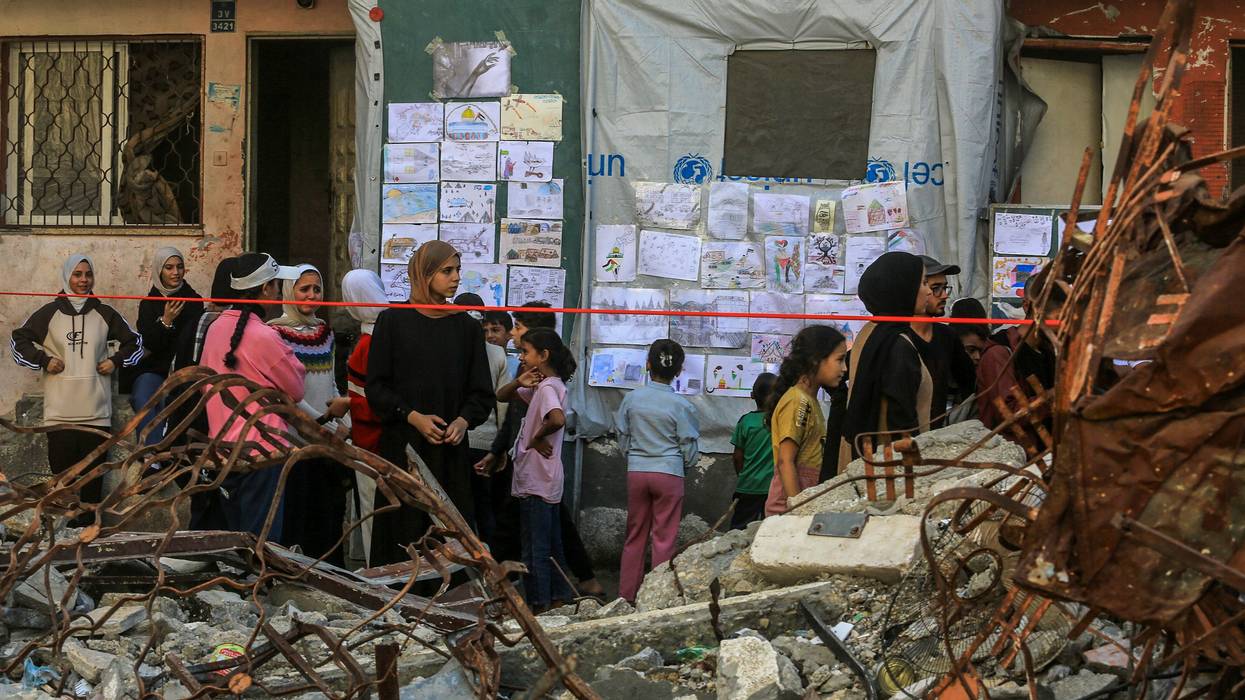
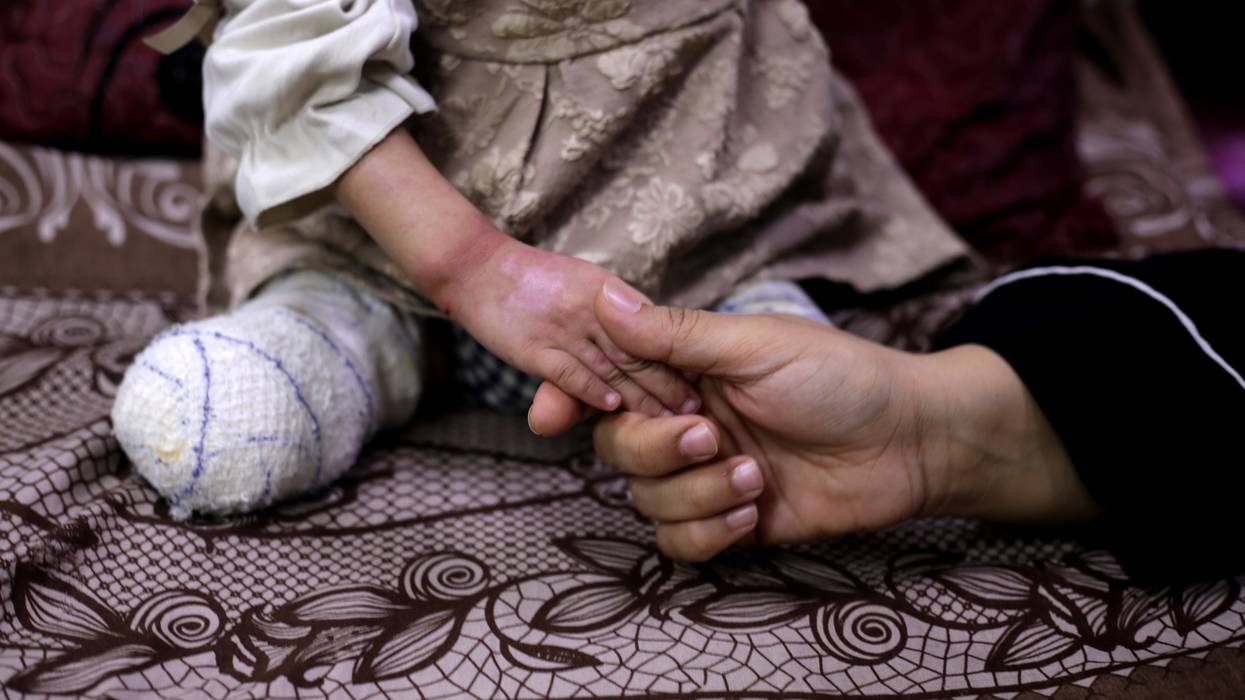
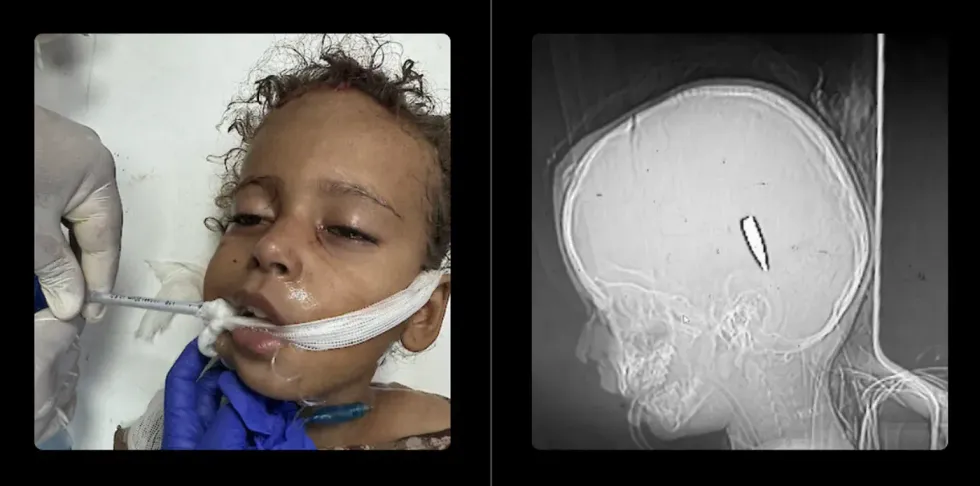 This Palestinian girl survived an Israeli bullet in the head. (Photo by Dr. Mimi Syed via de Volksrant)
This Palestinian girl survived an Israeli bullet in the head. (Photo by Dr. Mimi Syed via de Volksrant)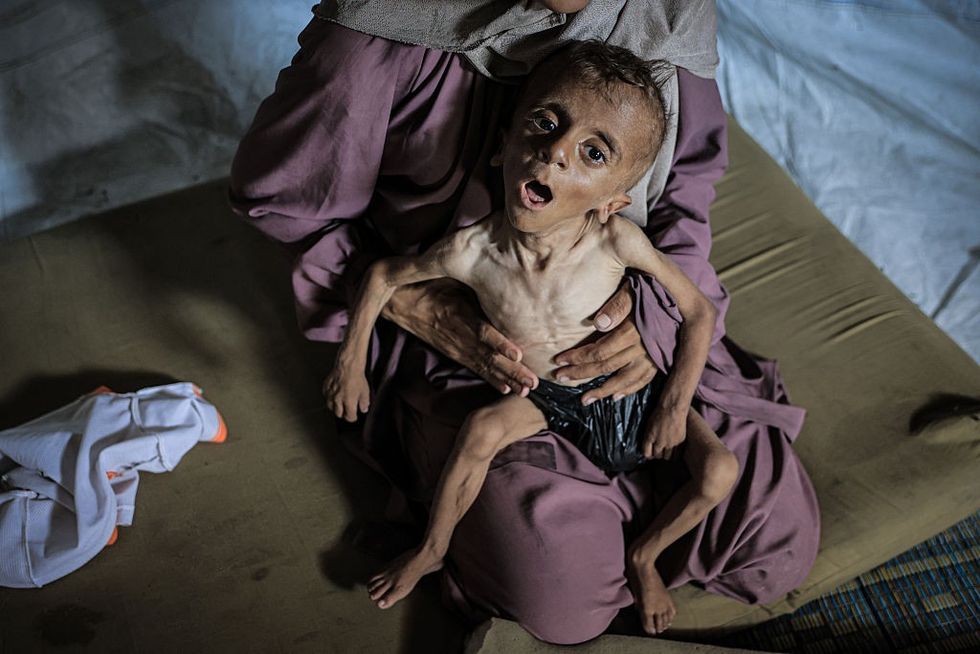 Muhammad Zakariya Ayyoub al-Matouq, a 1-year-old Palestinian boy from Gaza City, faces life-threatening malnutrition as the humanitarian situation worsens due to ongoing Israeli attacks and blockade, on July 21, 2025. (Photo by Ahmed Jihad Ibrahim Al-arini/Anadolu via Getty Images)
Muhammad Zakariya Ayyoub al-Matouq, a 1-year-old Palestinian boy from Gaza City, faces life-threatening malnutrition as the humanitarian situation worsens due to ongoing Israeli attacks and blockade, on July 21, 2025. (Photo by Ahmed Jihad Ibrahim Al-arini/Anadolu via Getty Images)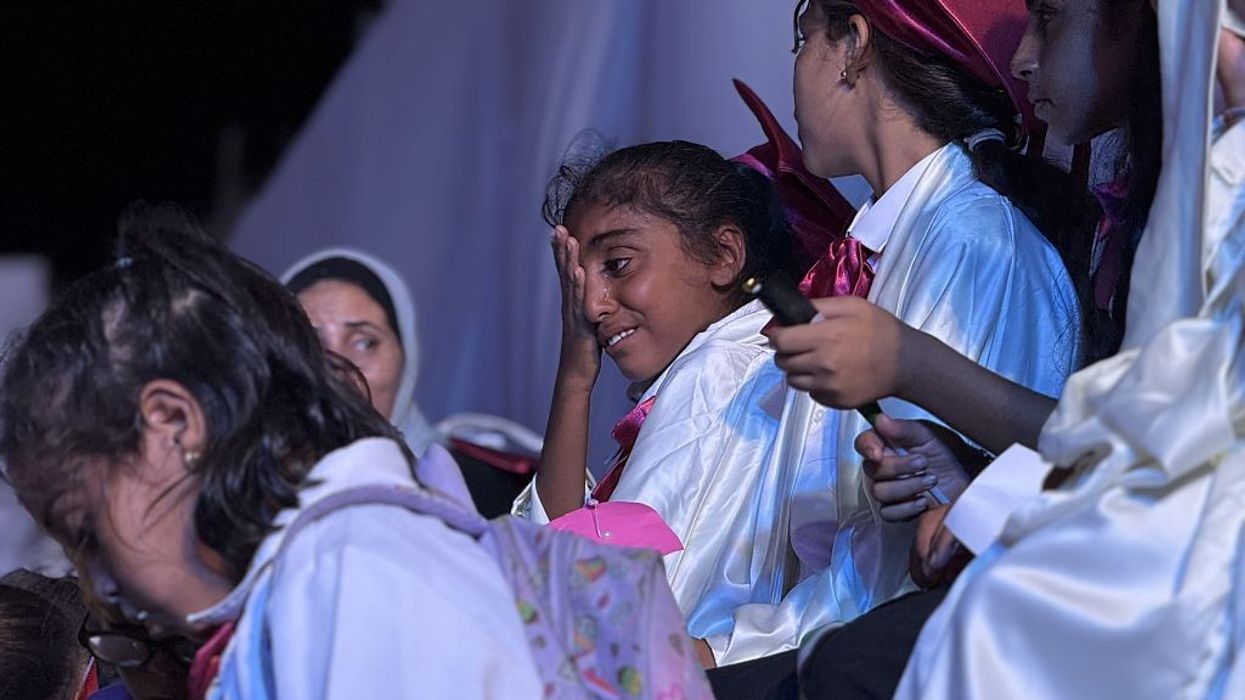
 Palestinian children take part in a graduation ceremony at al-Wafa Orphan Village in Khan Younis, Gaza on August 18, 2025. (Photo: Abdallah Alattar/Anadolu via Getty Images)
Palestinian children take part in a graduation ceremony at al-Wafa Orphan Village in Khan Younis, Gaza on August 18, 2025. (Photo: Abdallah Alattar/Anadolu via Getty Images)